When is Drunk Driving not Drunk Driving?
Most people believe that a bad act, when taken in the best of intentions, should not result in a criminal conviction. Unfortunately, this is not always the case. In this state (and others), the prosecution only has to prove you committed a “bad act,” intentions be damned. For example, if you steal a loaf of bread to feed your starving family, you can be imprisoned for larceny—a fact that anyone who seen Les Miserables should understand.
What about driving offenses? We spend a lot of time behind the wheel of a
car. What if we are presented with a dangerous situation and have to “get the hell out of Dodge,” for lack of a better term? Can we drive away, even if we have been consuming alcohol? This question takes me back to an appeal I handled
several years ago, which involved a young lady that was convicted of driving
while impaired (“DWI”), after she fled the home of her abusive boyfriend.
Unfortunately, she had been drinking and was pulled over by the police when she
was making her getaway from a situation that almost certainly would have led to
a bad ending. In the past, she called the police on several occasions when the
boyfriend assaulted her. She did not have the chance on the date in question.
Interestingly, the arresting officer responded to one of her earlier 911 calls with
the same boyfriend. All that said, the reason why she fled the apartment and the
boyfriend’s abusive history did not stop the police from arresting her for DWI. At
trial, she was convicted of this offense, after the trial judge did not allow her defense attorney to argue to the jury that she had a legally-valid reason to drive away from his apartment.
This is where things get complicated. In North Carolina, you are guilty of
DWI if you operate a vehicle on a street or highway, while you have a blood
alcohol concentration of 0.08 or above, or if you are otherwise impaired by some
substance other than alcohol. The General Assembly did not make any exception
for folks fleeing from dangerous situations.
However, the courts in this state (and throughout the country) have, at times, accepted what is referred to as the “necessity defense.” Generally, this defense allows folks to take actions that would otherwise violate the law, if they are taken done to prevent the imminent infliction of serious injury or loss of life. The person claiming the benefit of the defense has to show they were not at fault in bringing about the calamity giving rise to the defense. For example, the defense would not apply in a DWI case if you hit someone over the head with a beer bottle and then staggered, drunkenly, to your care to make your getaway.
Fortunately for my client (who I am not naming for privacy reasons), the
appellate court found the client made a sufficient showing they were not at fault in creating the situation that caused them to have to drive away from the violent boyfriend. This led to the conviction being overturned and a new trial being awarded. While this was a rare event—legally speaking—it reflects a humanity that sometimes is missing from the black and white of letter of our laws.
To make the long story short, if you are charged with a crime, like DWI, and you believe your actions served the greater good—namely, you did what you
had to do to avoid getting maimed, or worse, killed—the law provides you with
some protection. This makes sense to the lay-person. It also makes sense to
generations of legal scholars that formulated the necessity defense. In the
unfortunate event you think this defense may provide you some protection,
please call my office. I will be glad to help you.


